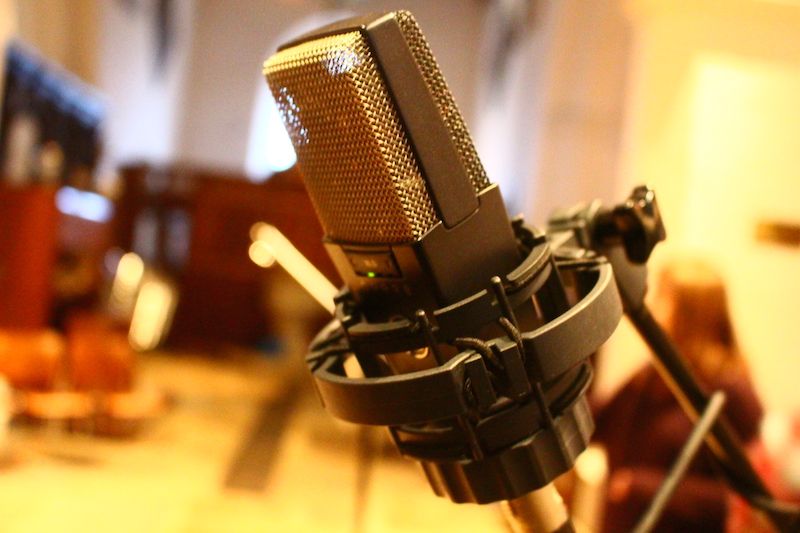On Memory is a collaboration between Harry Whalley, the author Alexander McCall Smith, and the neurologist Adam Zeman. They will be joined on stage by Soprano Sarah Dacey and the Gildas string quartet. The concert will explore different types of memory, each movement examines a different aspect in detail and covers some of the topics that Harry discusses below.
What is memory?
You may hear that a goldfish has a memory of 3 seconds, and an elephant never forgets. As a researcher these claims may demand some proof, but the conclusion that human memory falls somewhere between the two feels intuitive. Memory is a crucial cognitive function that allows us to learn, make decisions, and solve problems. Memory takes different forms such as: sensory memory, short-term memory (essential for music composition and processing), and long-term memory.
The brain regions like the hippocampus, prefrontal cortex, and amygdala play key roles in memory processing. In other words, there is no ‘single point’ that stores a memory, instead it is through association and embodiment that memory takes place.
How do our memories shape our personalities/sense of identity throughout our lives?
Memories play an essential part in shaping our personalities and sense of identity throughout our lives, from even before we are born to late adulthood. In early childhood, the foundation of our identity begins to form as we observe and interact with our environment, family, and caregivers. As we grow older and enter adolescence, our sense of self becomes more complex, with memories of experiences, achievements, and relationships contributing to our self-esteem and self-concept. During this stage, we actively explore our identities, experiment with different roles, and form strong memories associated with these experiences – for many people it is at this point in life that music and identify become particularly intertwined (think about the soundtrack from your own teenage years). In adulthood, our sense of identity stabilises, informed by past experiences, memories, and ongoing personal growth. Relationships, professional experiences, and personal achievements continue to shape our self-perception and identity, while the process of reminiscing in late adulthood helps individuals find meaning in their lives and maintain a sense of continuity despite physical and cognitive changes. Musical memories again have a special place now; as other types of memories fade, we often find a persistence in musical memories.

Why does music have such a power to evoke memories?
Music's unique ability to evoke memories stems from its strong emotional connections and engagement of multiple brain regions. Listening to a particular song or melody can trigger emotions that become associated with the music and the context of our initial experience, leading to powerful recall of specific events, people, or places. Music's repetitive and structured nature, with elements like rhythm, melody, and harmony, allows our brains to easily encode and recognize patterns, forming robust neural connections that link music to specific memories. Often experienced in social settings, music's emotional impact and the strength of the memories it evokes are heightened.
Building a connection between songs and associations is the focus of some of my research - using memory-tracks - a platform for people living with dementia. For those residents taking part in the study and their caregivers, we found that daily tasks, when undertaken to a specific piece of music, can act as a sort of framework for the day, reducing agitation and fostering familiarity by eliciting an emotional response in the brain. This engagement creates a sense of calm. As Mark Brill, one of my collaborators at UCA, puts it “the power of music is never more apparent than when you can see its effects in such an immediate and significant way”. This is one reason I feel so passionate about sharing my research.
More recently I have been undertaking a study, lessons in lifecare, with colleagues at the UCA Audio Research Cluster on the different effects that live and recorded music have for people living with dementia. Both recorded and live music seem to have specific benefits, personal connections to specific recordings on the one hand, group participation and social benefits on the other. The project also bridges generational gaps as we collaborate, not only with the lifecare centre and its staff but also with the musicians. The lesson is clear, but easy to miss - that music is functional; socially functional, emotionally functional. As this research continues, we build a better and more accurate picture of how to use music in as a form care.
What happens to our sense of self when we lose our memories?
When we sadly lose our memories, our sense of self can become profoundly impacted. Memory loss, which can occur due to various factors such as aging, neurodegenerative diseases, brain injury, or psychological trauma, can lead to difficulties in recognising ourselves and others, recalling past events, or understanding our roles in different contexts. With the loss of essential autobiographical information, we may struggle to maintain a coherent and continuous sense of self, which can lead to feelings of confusion, disorientation, and distress. Music can play a role in this regard too. Music is increasingly being recognised for the care itcan provide when planning for the future of an individual’s health. Thinking about the music that we want to bring with us through our lives is a thought-provoking exercise.
On Memory in science and music from UCA Audio Research on Vimeo.
On Memory will take place at Kings Place in London on Saturday 27 May at 7.30pm. Use the discount code UCA at checkout for £5 tickets.
/prod01/channel_8/media/marketing-media/news/news-2023/GILDAS-Kings-Place_on-memory.jpg)
/prod01/channel_8/media/marketing-media/news/news-2023/harry-whalley-composer-photo-kings-place-on-memory.jpg)